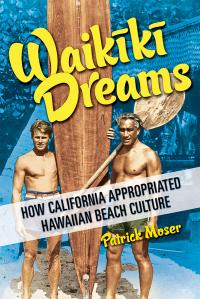
Qualifying Times
About the Book
This perceptive, lively study explores U.S. women's sport through historical "points of change": particular products or trends that dramatically influenced both women's participation in sport and cultural responses to women athletes.Beginning with the seemingly innocent ponytail, the subject of the Introduction, scholar Jaime Schultz challenges the reader to look at the historical and sociological significance of now-common items such as sports bras and tampons and ideas such as sex testing and competitive cheerleading. Tennis wear, tampons, and sports bras all facilitated women’s participation in physical culture, while physical educators, the aesthetic fitness movement, and Title IX encouraged women to challenge (or confront) policy, financial, and cultural obstacles.
While some of these points of change increased women's physical freedom and sporting participation, they also posed challenges. Tampons encouraged menstrual shame, sex testing (a tool never used with male athletes) perpetuated narrowly defined cultural norms of femininity, and the late-twentieth-century aesthetic fitness movement fed into an unrealistic beauty ideal.
Ultimately, Schultz finds that U.S. women's sport has progressed significantly but ambivalently. Although participation in sports is no longer uncommon for girls and women, Schultz argues that these "points of change" have contributed to a complex matrix of gender differentiation that marks the female athletic body as different than--as less than--the male body, despite the advantages it may confer.
About the Author
Jaime Schultz is an assistant professor of kinesiology and women's studies at Penn State University.Reviews
"Schultz has written an engaging and readable book detailing the points of change that she hopes will call into question the traditional 'eras' of sports history. Should be considered by all sports fans."--Library Journal"Schultz examines the persistent divide between athleticism and feminism. Recommended."--Choice
"Qualifying Times continues and deepens important discussions among scholars in recent decades concerning power, gender and athleticism. . . . a germinal text in the sense that it will certainly have influence, in myriad ways, on future work in sport history."--Journal of Sport History
"Qualifying Times provides a compelling read for everyone interested in the U.S. sporting past and present. Not only is Schultz's writing rich in source materials, small case studies and illustrative media images, it is also clear, to the point, and (appropriately) witty. While Schultz identifies common themes throughout all parts of the book, each chapter is a study in its own right. For this reason, as well as its clear and contextually rich character, the individual chapters make for perfect teaching material for classes in sport sociology, history, and/or women's studies."--Sport in American History
"Spirited and thought-provoking."--Women's Review of Books
Blurbs
"The next seminal work in the history of women's sport, beautifully written and cogently argued. Schultz builds on existing scholarship while also adding to it--no one else has examined the history of commonplace but important items and their role in the gendering of sport."--Sarah K. Fields, author of Female Gladiators: Gender, Law, and Contact Sport in America








